‘Friendly’ fights between partners, and hot seats: 5 things to watch at Sabah state election
“Sabah’s political landscape is extremely fragmented nowadays, so many parties and personalities all think they got a chance,” an analyst tells CNA about the record turnout of candidates. “So if you don’t try, you never know.”
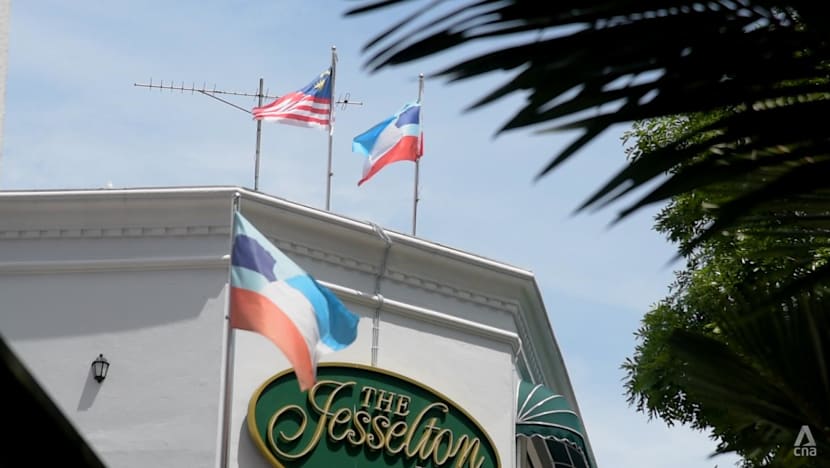
The Malaysia and Sabah flags on top of the Jesselton Hotel in the state capital Kota Kinabalu, formerly known as Jesselton. (Photo: CNA/Fadza Ishak)

This audio is generated by an AI tool.
KUALA LUMPUR: The 17th Sabah state election will see a bumper crop of 596 candidates vying for 73 seats in the state legislative assembly, in what is shaping up to be a tight race to polling day on Nov 29.
As the dust settled following nomination day on Nov 15, the crowded battlefield has become clear: All constituencies will play host to multi-cornered fights, with four-horse races being the minimum and one constituency - Tulid, an interior seat in Keningau - seeing a whopping 14-way battle.
The election will also be contested by 74 independent candidates, part of what has been described as a Black Wave Movement aimed at challenging Sabah’s major political parties while offering a credible alternative.
This comes amid a backdrop of Sabah’s long-standing municipal issues of poor water and electricity supply as well as roads, and a growing sentiment that the state should be governed by local parties that can more firmly push the federal government for its full autonomous rights.
Here are five key things to note as Sabah heads to the polls:
1. SEATS TO WATCH
The incumbent Gabungan Rakyat Sabah (GRS), a coalition of six local parties led by Chief Minister Hajiji Noor, will contest the election in a pact with the peninsula-based Pakatan Harapan (PH) coalition led by Prime Minister Anwar Ibrahim.
Hajiji reportedly said he is “confident” GRS and PH will form the state government on Nov 29, and an analyst told CNA that the seats that GRS contests should be keenly watched.
“GRS has to win enough seats to form the next government. If GRS doesn't do well, it means all the other key coalitions will have a chance,” said James Chin, Asian studies professor at the University of Tasmania.
For GRS, the “hot” seats to watch are in the Warisan strongholds on the east coast of Sabah, political analyst Bridget Welsh from the University of Nottingham Asia Research Institute Malaysia told CNA.
In a podcast discussing the seats to watch, Welsh highlighted the constituency of Kukusan in Kalabakan, the closest battle fought in the 2020 Sabah election. The seat was clinched by Warisan candidate Rina Jainal by a mere 10-vote majority over BN candidate Chaya Sulaiman.
Rina had since defected from Warisan to GRS component party Parti Harapan Rakyat Sabah (PHRS), but in a stunning turn of events was suspended by her party days before nominations reportedly due to “multiple breaches” of party discipline.
GRS has fielded PHRS’ Samsiah Usman instead, a decision that caused “a lot of discontent” among the coalition as the party is seen as "comparatively weak” compared to other GRS component parties, Welsh said.
Among other candidates in a 10-corner fight for Kukusan this year, Samsiah will go up against BN’s Chaya, Warisan’s Ma’mun Sulaiman - who is Chaya’s brother - and Rina, who will defend her seat as an independent.
Given that GRS’ vote would likely be split between Samsiah and Rina, Welsh predicted that the main contenders for Kukusan are BN and Warisan.
Another hot seat Welsh identified is Merotai, where PH candidate Ruji Ubi - who is from Anwar’s Parti Keadilan Rakyat (PKR) and has been touted as a chief minister candidate - will go up against Warisan’s incumbent Sarifuddin Hata and other candidates in a four-corner fight.
“As the campaign began we saw Warisan having the advantage, and now we see PKR gaining traction with the wealth of government resources and support, and ministerial visits,” Welsh said in her podcast.
The state seat of Kunak is also expected to see a tough six-way battle.
GRS’ Norazlinah Arif, who won the seat in 2020 under Warisan, will defend it against BN’s Anil Sandhu and Warisan’s Jasa Ismail Rauddah - a former state assemblyman in Kunak - among other candidates.
Welsh believes it will largely be a fight between BN and Warisan, given the former’s “strong machinery” in the area and the latter’s strategy of refielding past candidates who were successful.
Warisan’s full slate revealed that the party “is going with older names, hoping to win support through name recognition locally and is more focused on its party brand”, Welsh told CNA.
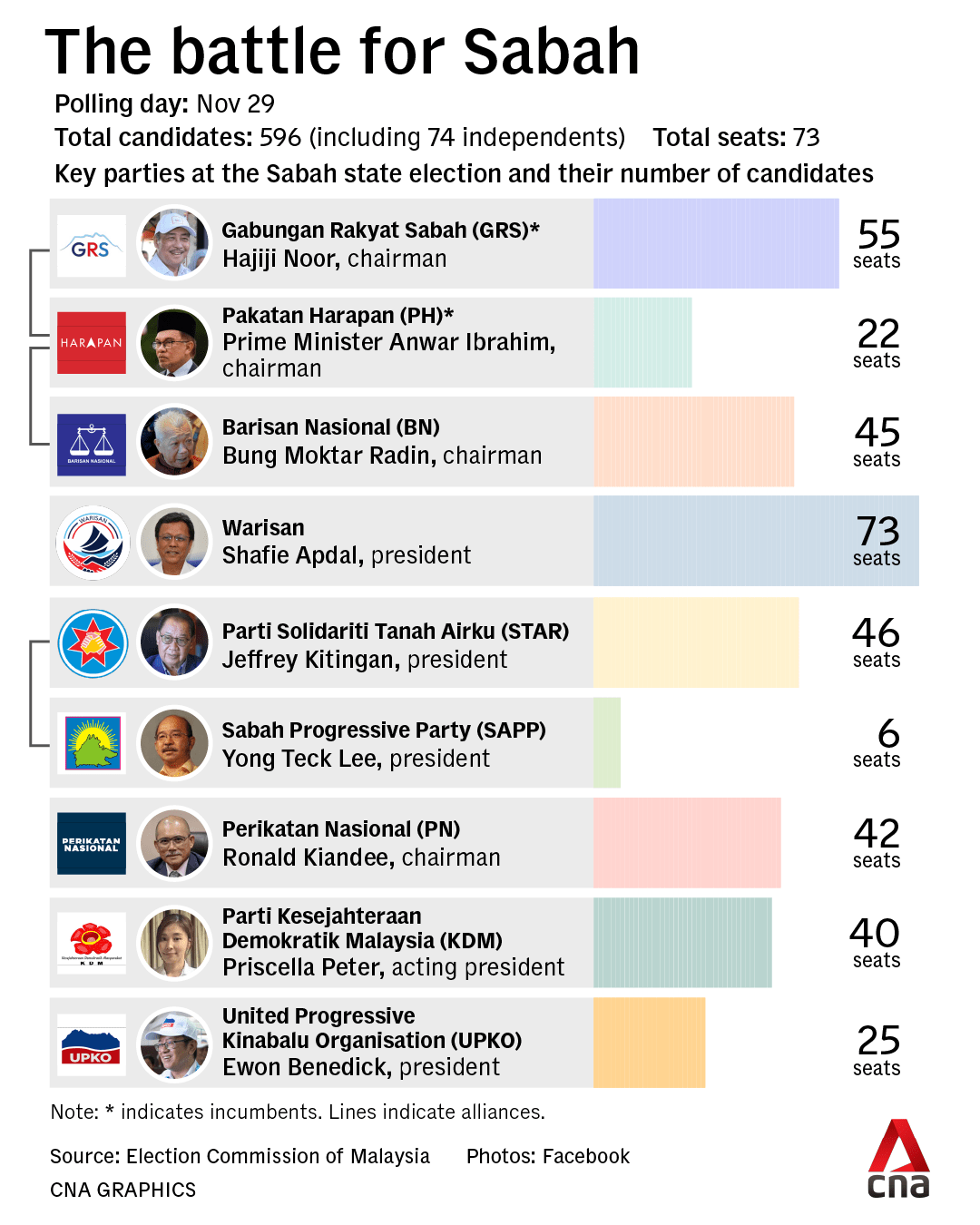
2. DYNAMICS BETWEEN PARTIES
In partnering PH, Chin from the University of Tasmania said GRS is gunning for a “repeat of the last round”, when GRS won 38 seats at the 2020 Sabah election while in a coalition with Parti Pribumi Bersatu Malaysia, which led the federal government at the time.
At the same time, PH has formed a pact with the Barisan Nasional (BN) coalition, mirroring their partnership in the federal unity government.
GRS and PH will contest 55 seats and 22 seats respectively, meaning the parties will fight out “friendly” contests despite being in an alliance. This also applies to the PH-BN alliance, with BN contesting 45 seats.
On Nov 17, PH candidate for Silam, Abdul Halim Sidek Gulam Hassan, announced he was pulling out, citing factors including maintaining harmony among PH’s partners in Sabah. GRS is also contesting in Silam.
But the Election Commission said on Nov 18 that candidates are not allowed to withdraw their nomination after 10am on nomination day. This means Abdul Halim's name will remain on the ballot paper.
Analysts have said the friendly match-ups - which stem from disagreements over seat allocations - could split the vote and favour the opposition.
The final list of candidates released after nominations closed also showed that political deals between the main coalitions of GRS and PH as well as BN and PH were “not solid”, with friendly fights “ongoing”, Welsh said.
This could be seen in constituencies like Bandau and Moyog, where both GRS and PH have fielded candidates, and in Karamunting, where both BN and PH have done the same.
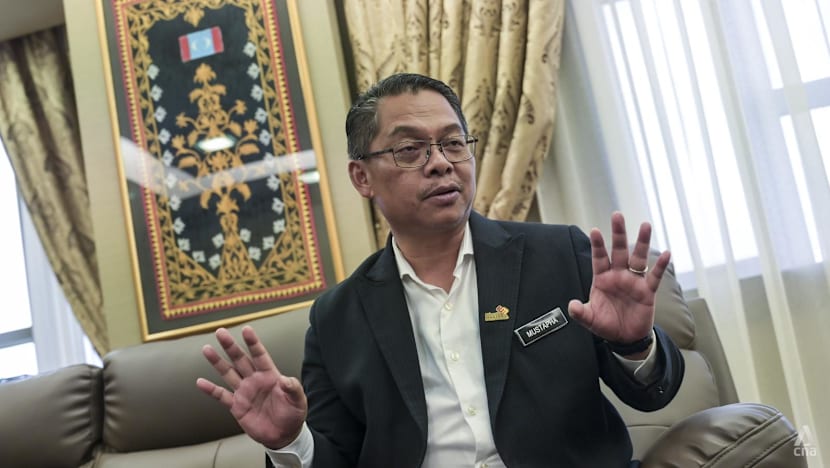
Sabah PKR chief Mustapha Sakmud had on Nov 12 objected to GRS’ decision to contest in the Kadamaian and Moyog seats, and BN’s decision to field a candidate in the Karamunting seat.
While PKR seemingly gave way to GRS by not fielding a candidate in Kadamaian, it proceeded to contest in Moyog and Karamunting. In addition, PKR also fielded a candidate in Bandau, setting up a friendly fight with GRS there.
In a commentary for the Daily Express published on Nov 16, Teddy Chin, a veteran Sabah political commentator, described PKR’s move to field its Sabah youth chief Zaidi Jatil in Bandau as “revenge” against GRS.
“(Zaidi) is a popular young leader who defeated … (a) former Sabah PKR secretary in the party election earlier this year,” the commentator wrote.
3. MULTI-CORNERED FIGHTS
The previous Sabah election in 2020 had the most number of candidates - including 56 independents - and multi-cornered contests in the state’s history, with two seats seeing a 10-cornered and 11-cornered fight.
This year’s numbers have topped that.
Oh Ei Sun, senior fellow at the Singapore Institute of International Affairs (SIIA), said this trend shows “every seat counts when it comes to the formation of the state government”.
“Sabah’s political landscape is extremely fragmented nowadays, so many parties and personalities all think they got a chance,” he told CNA.
“So if you don’t try, you never know.”
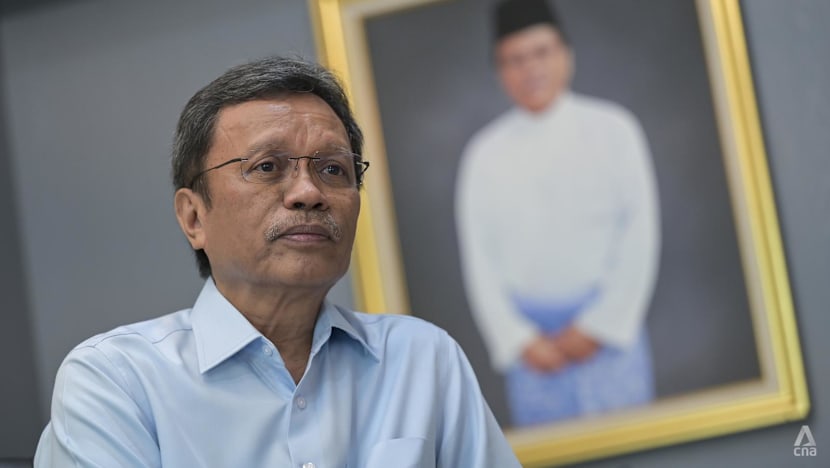
The main opposition party Warisan is the only party that will contest all 73 seats. The party, which is going solo, is strong in the state’s east coast, where Muslim bumiputera voters reside.
If Warisan manages to win in Sabah’s Chinese-dominated urban seats, constituencies generally considered a stronghold for GRS-PH, it could form the government with former GRS and PH component parties, Oh told CNA.
The latter refers to parties like Parti Solidariti Tanah Airku (STAR) and the United Progressive Kinabalu Organisation (UPKO), which have good support in the non-Muslim bumiputera-dominated interior seats.
“If you read around, the consensus is that Warisan is projected to once again win the most number of seats, but perhaps not enough to clinch an outright majority,” said Oh.
“BN is biding its time to win as many seats as possible and become kingmakers.”
Chin from the University of Tasmania said peninsula-based coalitions like PH and BN are “throwing in a lot of resources” for the election because they think that a change of government is “highly possible” this time.
“Each of these groups wants as many candidates as possible, because they know that whoever ends up with the largest number of candidates after the election will probably have a much easier time forming a post-election government,” he added.
4. INDEPENDENTS
Likewise, the record number of independent candidates shows “people think that GRS is weak and can be overthrown”, Chin said.
The independent movement could also reflect a higher level of democracy and the “pivotal” role of the candidate, Welsh said, citing how their social and political standing - including family size, family ties and personality - are factors that can win votes in Sabah.
Kudat federal member of parliament Verdon Bahanda, who is leading the Black Wave Movement, said independents who win will act as a check and balance group in the government, and not simply be in the opposition bloc.
“We want government policies that need to be improved to be done during the administration, not after the end of the term. So, only we can do this because we are not tied to anyone,” he was quoted as saying in a Nov 13 Bernama report.
5. KEY ISSUES
On Nov 12, a Kedah state assemblyman from Parti Islam Se-Malaysia (PAS) said that winning over the people of Sabah was “as simple as giving them Gardenia bread”.
East Malaysians who visit the peninsula are known to buy Gardenia bread in bulk to bring home because the brand is not readily available in Borneo. The Gardenia variety that can be found there reportedly costs more and does not taste as good.
But the PAS assemblyman's remark was widely deemed insulting and in poor taste, attracting criticism from Sabahans and their politicians for what appeared to be another example of how peninsula-based parties mistreat Sabah.
While the assemblyman eventually apologised for his remark, it seems to have further dented PAS’ slim chances of winning in any of the five seats it will contest in the fiercely multi-religious state, as online memes mocking the Gardenia faux pas surfaced through nomination day.
In the bigger picture, Sabah’s autonomous rights under the Malaysia Agreement 1963 (MA63), including its entitlement to 40 per cent of the revenue it contributes to the federal government, continue to dominate the campaign.
On Nov 8, UPKO president Ewon Benedick announced his resignation from the federal Cabinet over what he said was the federal government’s “disregard” for the 40 per cent issue.
Ewon, who subsequently pulled his party out of PH, was criticised by Transport Minister Anthony Loke as “playing to the gallery”. Loke is also secretary-general of the Democratic Action Party (DAP), a fellow PH component party.
UPKO honorary president Wilfred Madius Tangau shot back by saying that Sabahans have lauded Ewon’s move as the federal government was “going back on its word” by appealing a portion of a High Court ruling on the 40 per cent issue.
“Loke should know that a more suitable definition of the phrase playing to the gallery is when a leader gives a speech containing half truths while showing off his oratory skills - like when Anwar Ibrahim did when announcing the PKR candidates recently,” Wilfred said in a statement.
This growing movement towards prioritising local parties over their peninsular counterparts has not spared GRS either. The incumbent coalition has seen two of its component parties - STAR, led by longtime vocal MA63 proponent Jeffrey Kitingan, and the Sabah Progressive Party (SAPP) - leave because of its pact with PH.
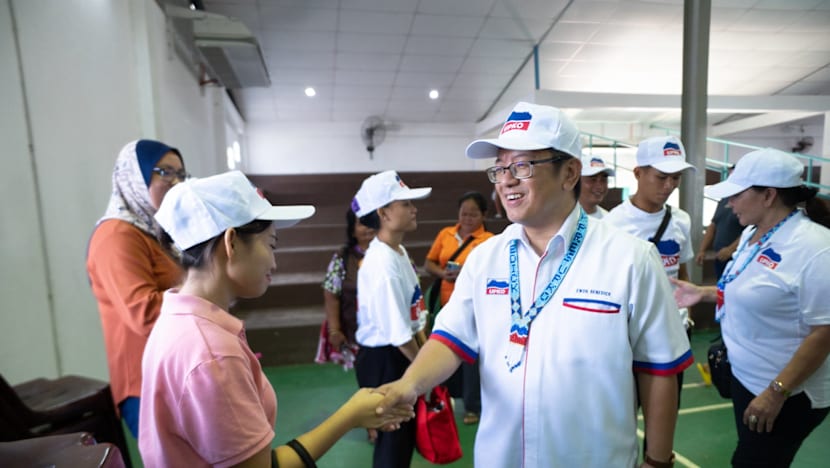
But Oh from SIIA said this has not deterred GRS-PH.
“DAP is even trying to topple some of its opponents, and PKR is even presenting potential chief minister candidates,” he said.
Oh also pointed to how GRS has chosen not to field several of its incumbent assemblymen who have been implicated in a mining corruption scandal in Sabah.
“I think GRS and PH are still thinking that they have the upper hand, and that with some minor tweaks, they could still form the next state government,” he added.
Editor's note: This article has been updated with the latest number of candidates after Malaysia's Election Commission said the PH candidate for Silam will remain on the ballot paper despite his intention to withdraw his candidacy.



















